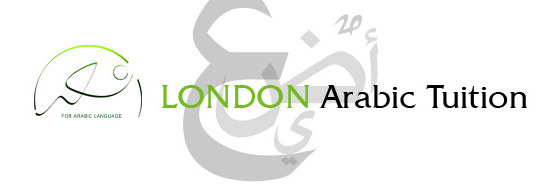Plateau Phases When Learning Arabic: What they are and What to Do About Them
The initial phase of starting to learn a new language or a new skill is very exciting. You are looking forward to increasing your knowledge and are already looking forward to applying it. You work hard and study diligently, and your hard work pays off in steady progress over the first five or six months. During this time, you use each bit of progress, no matter how small, to encourage you to keep trying and developing your skills. After a time, you hit one of the plateau phases when learning Arabic when all progress seems to stop and you find that you aren’t making any further progress, no matter how hard you continue to work.
Why do these plateau phases happen? What can you do to move past them and get back on track?
Image Credit: FreeDigitalPhotos.net
Plateau Phases when Learning Arabic: What they Are
A plateau phase occurs when you are learning a new language or skill when you have gotten into the routine of using the same routine and habits that you have used since the beginning of the process. As a result, you end up hitting a virtual “wall.” After that point, you stop continuing to make progress, even though you have been successful up to that point in time.
If you are continuing to put forth effort to learn but you aren’t seeing the results you want, it’s normal to feel frustrated. As a result, you are going to be less motivated to learn the language.
Some people will even take their lack of progress with learning Arabic personally. They may tell themselves that Arabic is too complicated for them to learn. Other people may say to themselves that they lack the skills or the talent to learn this language, whereas other people possess the required elements to do so with ease. They may also tell themselves that the reason they have hit a plateau is that they simply “are not good with languages” and cannot progress beyond this point in their learning.
None of the statements listed above are true. Hitting a plateau stage when learning Arabic is quite common for learners. Fortunately, you don’t have to stay stuck in this stage; there are some things you can do to move past it.
Image Credit FreeDigitalPhotos.net
How to Get out of Plateau Phases when Learning Arabic
Instead of becoming frustrated when you hit one of the plateau phases when learning Arabic, one of the best things you can do is anticipate and prepare for them. Your attitude will determine how well you deal with these normal “bumps” in the process of learning a new language or skill. They can’t be avoided, so you are better off being proactive in developing a strategy to deal with them in advance rather than simply reacting to them at the time.
• Change the Way you Learn
Instead of sticking to the same learning strategies all the time, change them up and replace them with new ones. If you have been spending a lot of time with your text book, start watching videos more often. Use audio tapes and repeat what has been said. Find another person to practice speaking with so that you are practicing using your Arabic in a real conversation.
Find someone who has reached a level that is slightly above the where you currently are so that you have something to aspire to. Model the way they speak and use the language. Keep practicing until you sound more like the person whom you are trying to emulate.
Make a point of doing this each month. That way, you are not getting bored with the way you are learning Arabic and are less likely to get stuck on a plateau.
• Get Constant and Immediate Feedback on your Progress
Part of the frustration with hitting a plateau when you are learning to speak Arabic is that you feel as though you aren’t making any progress with your studies. To find out whether this is the case, you’ll need to enlist the help of people around you.
Ask your teacher and your friends to help you by listening to the way you speak Arabic. You can record your voice using your smartphone they can listen to the way you are pronouncing the words in your lessons. Play the recording for them and ask them for feedback on your pronunciation, grammar and whether you sound natural when you speak.





Leave a Reply
You must be logged in to post a comment.